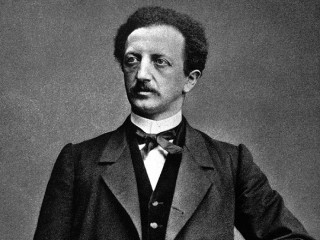
Ferdinand Lassalle biography
Date of birth : 1825-04-11
Date of death : 1864-08-28
Birthplace : Breslau, Germany
Nationality : German
Category : Politics
Last modified : 2011-05-03
Credited as : Socialist leader, jurist,
The German socialist leader Ferdinand Lassalle is considered the founder of the German Social Democratic party and a major theoretician of "scientific" socialism.
Ferdinand Lassalle, whose real name was Lasal, was born in Breslau on April 11, 1825, the only son of a wealthy Jewish silk merchant. While still a boy, he rejected both Judaism and a career in the family business for what he felt was the freedom of secular thought and demanded an academic career.
Lassalle changed his last name purportedly to give it a French (that is revolutionary) sound, an action that has been described as characteristic and symptomatic of his posturing personality. Virtually all commentators, including those most sympathetic to Lassalle and his program, agree that, while he was one of the most romantic and colorful figures in modern politics, he was also a rather foppish and quixotic person of colossal vanity and arrogance.
Lassalle studied at the universities of Breslau and Berlin where he became enthralled with the philosophy of G. W. F. Hegel and was convinced that the Hegelian "World Spirit" was realizing itself in the current age through himself.
As the prosecutor in a lengthy and much-publicized divorce suit (1846-1854), which Lassalle entered out of his hatred of aristocratic and male privilege, he became famous. During this period he acquainted himself with Karl Marx's writings and developed his own theory of socialism, which is sometimes described as "state socialism," although many of his followers deny that he was an adherent of that brand of socialism. Nevertheless, he denied—in contrast to Marx—that the bourgeoisie must be totally destroyed and also emphasized the positive role of nationalism. He thus generally advocated state action rather than revolution, that is, a take-over—not destruction—of the bourgeois state by a workers' party, and favored a state system of workers' cooperatives.
At the conclusion of the lawsuit, Lassalle became the teacher and political leader of the emerging German labor movement. He advocated universal suffrage as the means by which the workers could force the bourgeois state to turn over to them the entire fruit of their labor and not just a percentage of it. Trade union activity, as he saw it, would be of little or no use in itself. The working class embodied the spirit of the people, whose higher will was manifest in the state. Labor could emancipate itself only through capturing the concentrated political power found in the machinery of the state.
Lassalle's chief significance, however, was in the realm of practical politics rather than in theory. He laid the groundwork for the modern German Social Democratic party. In 1862 he drew up the Program for the Workingman, a document similar to Marx and Engels's Communist Manifesto. The following year his General Association of German Workers was formed, the lineal ancestor of the Social Democratic party.
In 1864, however, before the party had grown beyond a few thousand members, Lassalle became involved in a dispute over a girl half his age, which led to a duel. He was killed before he managed to draw his pistol, on Aug. 28, 1864.
















